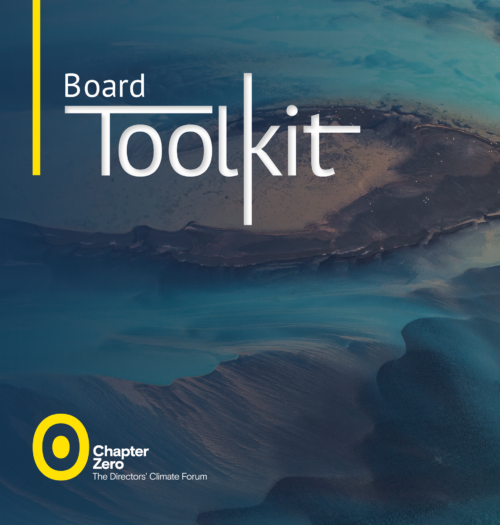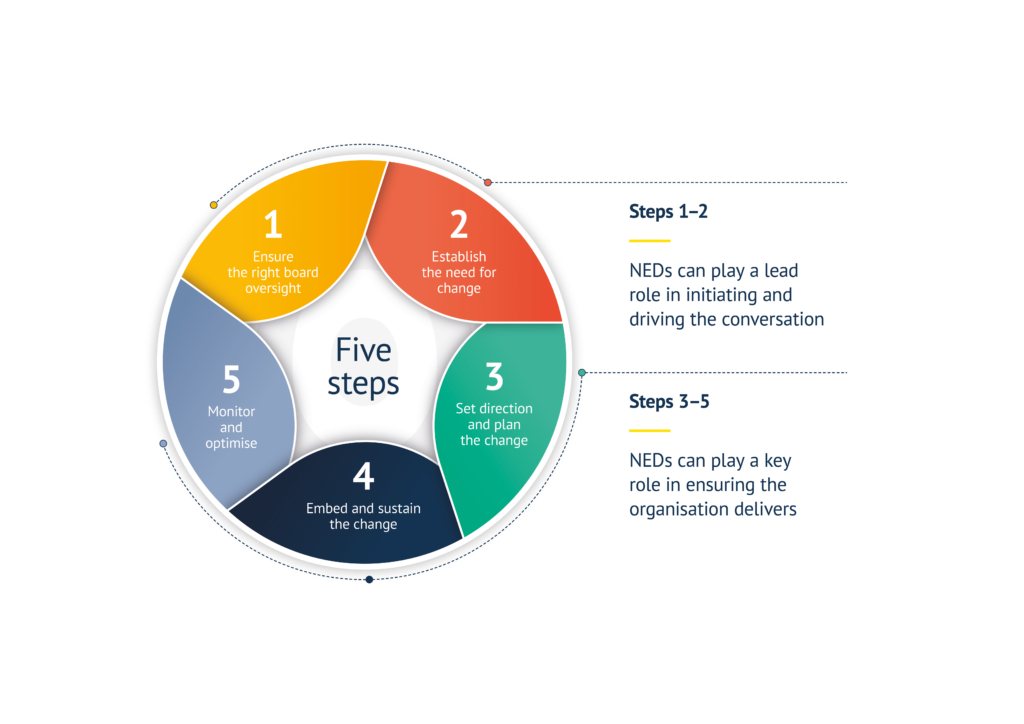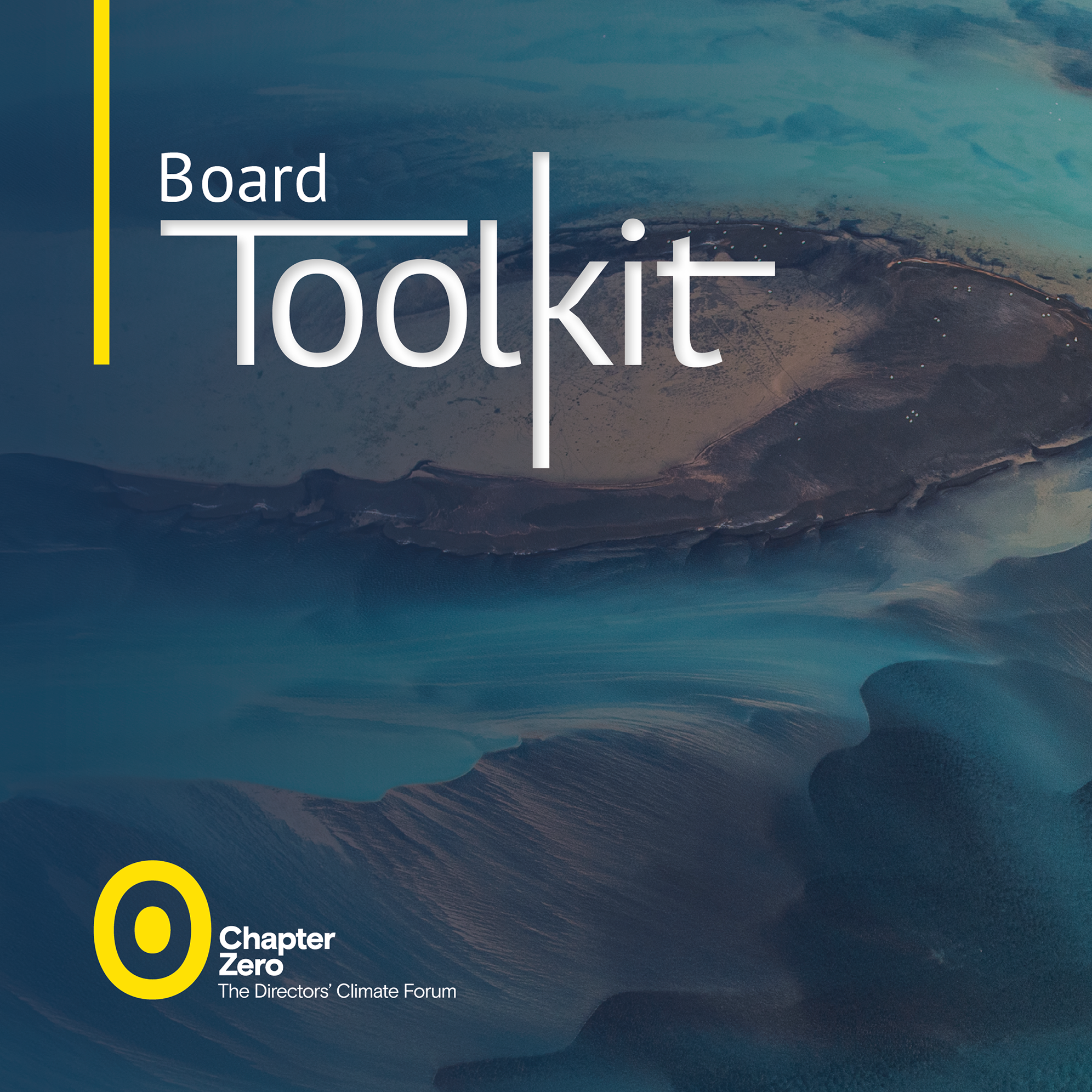
The Chapter Zero Board Toolkit
It’s no secret that there’s a growing urgency for businesses to act decisively to minimise their climate impact in order to survive and thrive, and to harness the opportunities of the transition to net zero.
Non-executive directors (NEDs) can play an important part in this shift, particularly Chapter Zero members who are well informed and leading the boardroom discussion.
Our tools are great resources to help with this
Today we launched a new, updated version of our popular Board Toolkit, designed to help NEDs address climate change as a strategic business issue, and encourage their companies to take timely, positive and decisive action to drive the transition.
It contains questions for NEDs to consider and pose to their boards, five clear steps to follow, checklists, tools and guides, and options for deeper reading.
Our non-executive director members are currently grappling with a wide range of climate and business issues and are in a strong position to drive the change we need in the net zero transition. This Board Toolkit is designed to provide practical steps to help them with this challenge.
Julie Baddeley, Chair of the Board, Chapter Zero
Practical action: the 5 steps

The core of the Board Toolkit is based around five key steps that boards can take to ensure their businesses have a holistic, robust and deliverable plan for reducing their emissions, responding to the opportunities of the net zero transition, and to the need for adaptation.

Try it for yourself
The Board Toolkit was created by Chapter Zero, The Berkeley Partnership and the Centre for Climate Engagement.
Try the Board Toolkit


